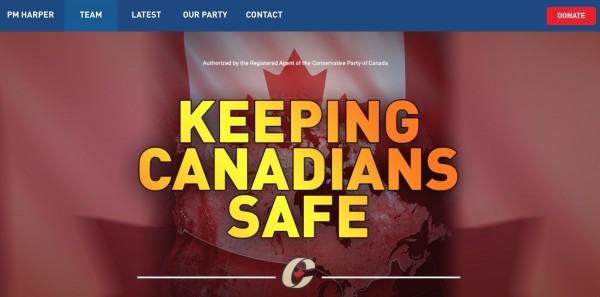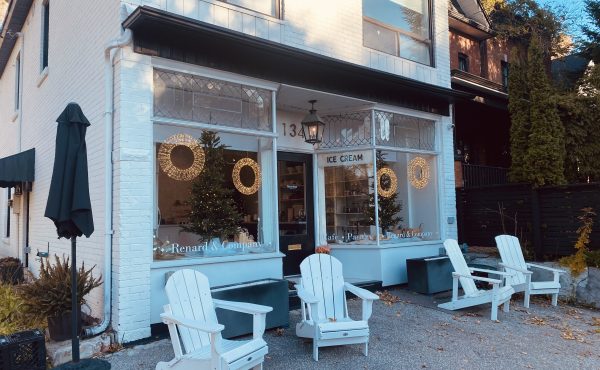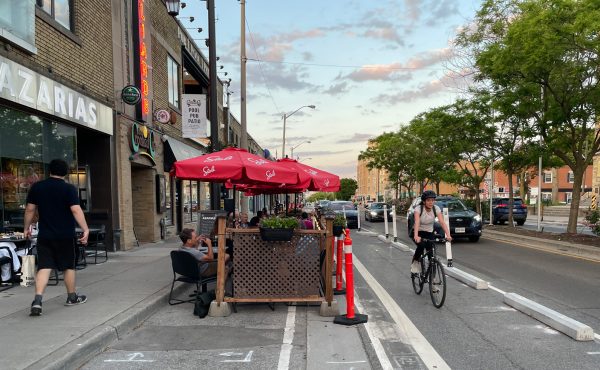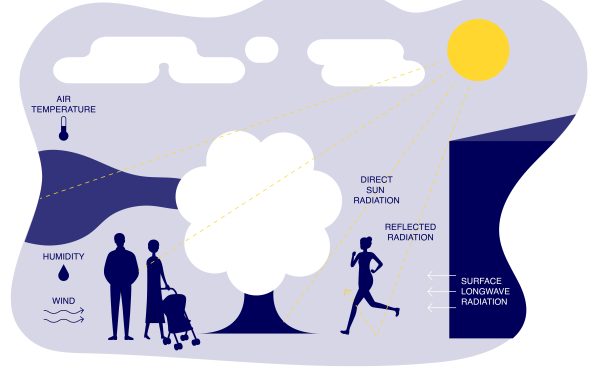Over the weekend, according to media reports, the Conservative’s election crisis response to public outrage over Ottawa’s handling of the refugee crisis began to take shape: expedited applicant processing, matching funds for donations to relief efforts (i.e., a distraction from Canada’s woefully inadequate commitment), a renewed emphasis on selecting ethnic and religious “minorities” (i.e., non-Muslims), no airlifts, and a doubling down on the importance of military action against ISIS.
Yet as the home page of the Conservative’s website all but shouts, the party’s dominant concern is “Keeping Canadians Safe.” Conservative compassion, so-called, always comes with poll-tested caveats and dog-whistle messaging.
In other words, more of the same, and who, frankly, is surprised? After all, the Harper government’s foreign policy has long revealed evidence that it is the handiwork of partisan-minded amateurs, not diplomats and statesmen.
Apart from a few showy moves (e.g., maternal health) and a fixation with trade deals, the Tories’ policies have been geared at winning over tactically significant domestic voting blocks, pandering to social conservatives (e.g., excluding birth control from the above mentioned showboat effort), and conspicuously abandoning certain Canadians to their respective fates (Omar Khadr, whose parole the government fought tooth and nail; and journalist Mohamed Fahmy, whose affiliation with Al Jazeera English appears to have disqualified him from full-throated diplomatic advocacy).
I understand the political logic of fashioning domestic fiscal and social policy to reward loyal voters or supportive stakeholders. Doing the same with foreign policy displays not just a deeply troubling lack of seriousness about Canada’s role in the world, but also an admission that our approach to global diplomacy is no more than a series of electoral talking points.
No wonder we’re not taken seriously.
It’s so revealing that Harper, after a bruising week, is opting to stress the links between the Conservatives’ refugee/humanitarian response and their so-called war on terror. Lacking compelling evidence that Canada has become a breeding ground for large numbers of ISIS recruits or a target for suicide bombers, the Conservatives will manufacture a potential crisis by telegraphing the message that expedited admissions may allow Iranian agents or ISIS recruiters into the country. Better to bomb and contain the spread of that war.
But the logic of this argument falls apart like wet toilet paper.
The Germans have a highly effective and well-funded security agency, BND, and yet Chancellor Angela Merkel’s government has figured out how to respond to the crisis without sacrificing domestic safety in a frenzy of naïve humanitarianism. Do we know something that the German spies don’t? I think not.
Closer to home, consider that General (Ret’d) Rick Hillier, former chief of defense, yesterday pointedly rebuked Jason Kenney’s move to rule out airlifts by telling CBC that the Canadian Forces could bring 50,000 refugees here by Christmas. Hillier — a plain-spoken solider who commanded NATO forces in Afghanistan and oversaw the military during the post 9/11 era — is the last guy who’d advocate measure that would recklessly expose Canadians to a domestic security threat. As above: does the Tory campaign brain trust know something that Hillier doesn’t? Nope.
Similarly, Ottawa’s insistence that Canada’s participation in the bombing campaign is the best path to greater security at home fails to consider the converse proposition: what if our planes and warrior rhetoric is making Canada more, rather than less, vulnerable to terrorist attacks, kidnappings and ransom demands?
This question, it seems to me, informs the NDP’s pledge to pull out of the bombing and training campaign in Iraq and Syria, which, as Thomas Mulcair has been saying for a year, lacks the United Nations’ sanction.
No one should ever forget that there are hundreds of Canadian soldiers who are alive today because former Liberal prime minister Jean Chretien withstood U.S. pressure to join the invasion of Iraq in 2003, citing the importance of an independent foreign policy. But more broadly, Canada’s refusal to participate in George Bush’s tragic war made us a safer nation domestically.
Likewise with the domestic response to the current refugee crisis. An old truism about foreign policy is that nations must act in their own self-interest, and to do otherwise is to court disaster. Yet the Tories have tellingly conflated their own political self-interest with a broader conception of national self-interest.
Why are the Germans admitting so many refugees? As has been widely reported, the government sees an opportunity to tackle long-term demographic and labour force issues (aging population, low birth rate, etc.) by boosting the numbers of refugees it takes in and allocating the proper resources to re-settlement.
What’s the pragmatic case in favour of a humanitarian response that more closely approximates Canada’s historical record? Refugees, after all, often arrive with more pressing challenges than economic or family class immigrants, and do face housing, employment and mental health issues. This reality will also surely be true for the survivors of the Syrian civil war and the ISIS brutality in neighbouring nations.
But, as this 2014 CERIS study prepared for federal citizenship and immigration officials by a team of academics concludes, refugees of all classes “on average integrate economically” and some fare better than entrepreneur-class immigrants. “If the number of temporary foreign workers visas issues is any indication,” the authors observe, “Canada needs workers who are not necessarily all professionals with advanced degrees.”
I’d offer another palpable but unquantifiable benefit: the outpouring of public concern, which has built steadily all year and crested in the last two weeks, has offered Canadian communities a rare opportunity to strengthen bonds and find points of commonality among neighbours and newcomers who didn’t know one another before. As in previous humanitarian crises, many individuals, non-profits, municipalities, and corporations have responded with great generosity of spirit. I am at a loss as to understand why any political leader would balk at marshalling this positive energy as a means of building a more cohesive, peaceful and purposeful nation. Put another way, a nation better equipped, socially, to resist the siren call of terrorist recruiters.
This whole episode, in fact, brings to mind the way ordinary Calgarians responded to the flooding on the Bow River two years ago. In an electrifying speech last fall at Ryerson University, Mayor Naheed Nenshi recalled wandering through a drenched neighbourhood full of destroyed homes and coming across a hand-written sign on a tree: “We lost some stuff, we gained a community. Thank You.” The task of civic leaders, Nenshi came to realize, “is about getting the community right.”
Long before this crisis erupted, Stephen Harper would have been wise to listen to his own mayor rather than his own cynical instincts and the loyal tacticians who fashioned the Conservatives’ focus group foreign policy. Instead of doing the right thing, he’s going to keep digging.






